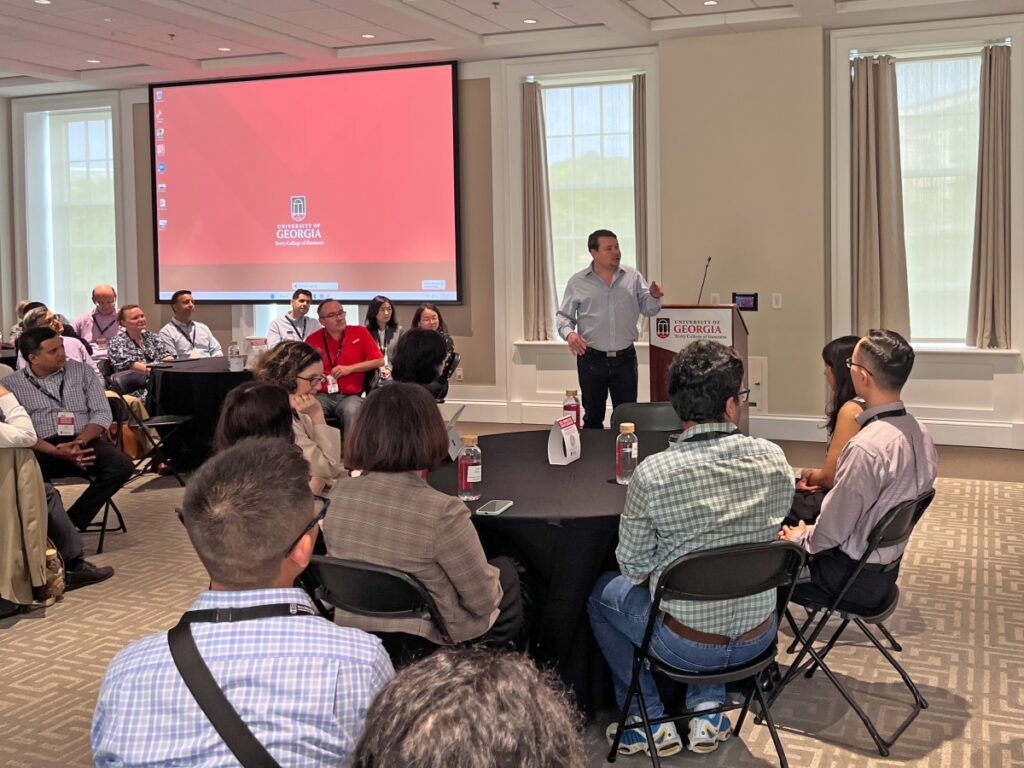More than 100 marketing researchers from across the U.S. converged on the University of Georgia campus June 5-7 to share research into sustainable marketing practices, develop a better understanding of sustainable marketing and build a road map for research moving forward.
“There are so many different definitions of sustainability,” said Will Thompson, chief strategy officer for Forbes Ignite and opening speaker on the first day of the conference. “But I also think that might be a little bit narrow.
“When I say, ‘Let’s have a strategy that doesn’t steal from the future,’ I haven’t said anything about women, people of color, people from different religious backgrounds, and their current happiness, our current happiness, and the future of justice for everyone on Earth. You don’t get that from just not stealing from the future. So, I think we could do a better job of defining what sustainability means within a justice-oriented context.”
The consortium, attracting early and late-career researchers from around the U.S. and a small contingent from Europe and Asia, was sponsored by Terry College as well as the American Marketing Association and the Academy of Marketing Science.
Researchers presented and participated in roundtable discussions on topics ranging from “How can you develop and publish marketing-specific theory around sustainability?” to “How can researchers work with people outside academia to improve the world?”
John Hulland, professor and head of the marketing department at UGA’s Terry College of Business, worked with associate professors of marketing Neil Bendle and Ani Chakravarty to organize the meeting.
Marketing strategy research has a lot of potential to tackle issues related to sustainability, and this conference was a chance to develop a list of the big questions researchers need to tackle and inspire younger academics to pursue sustainable marketing research topics.
“We were trying to give impetus to the junior scholars,” Bendle said. “We had several junior scholars who were very pleased for their chance to get up in front of everyone and present their research and host discussion. At these sorts of things, you tend to have more senior people present. They usually have something great to say, but we were hoping for new voices. This was a perfect opportunity to hear from the younger researchers and faculty.”
The Terry College of Business Department of Marketing is at the forefront of academic research in sales management, brand management, business-to-business marketing and consumer behavior. The department is the 12th most productive in terms of papers published by public business school marketing faculty.

